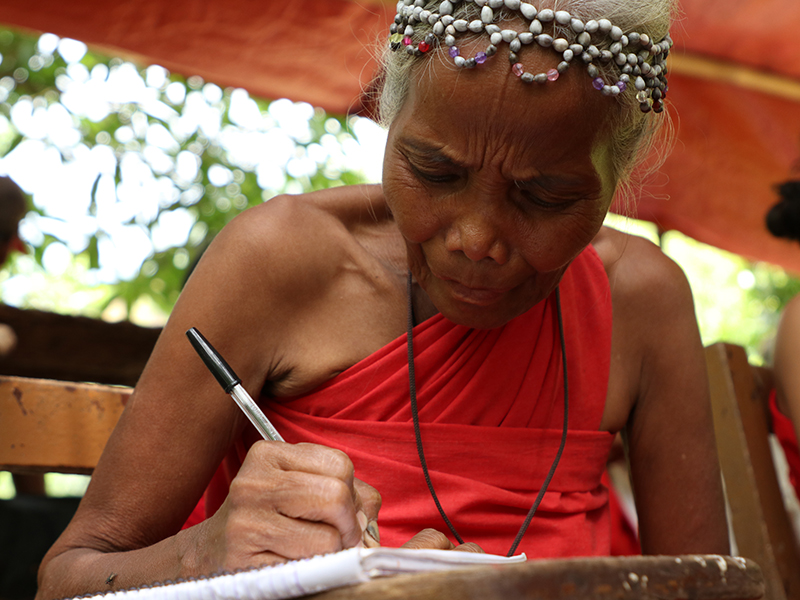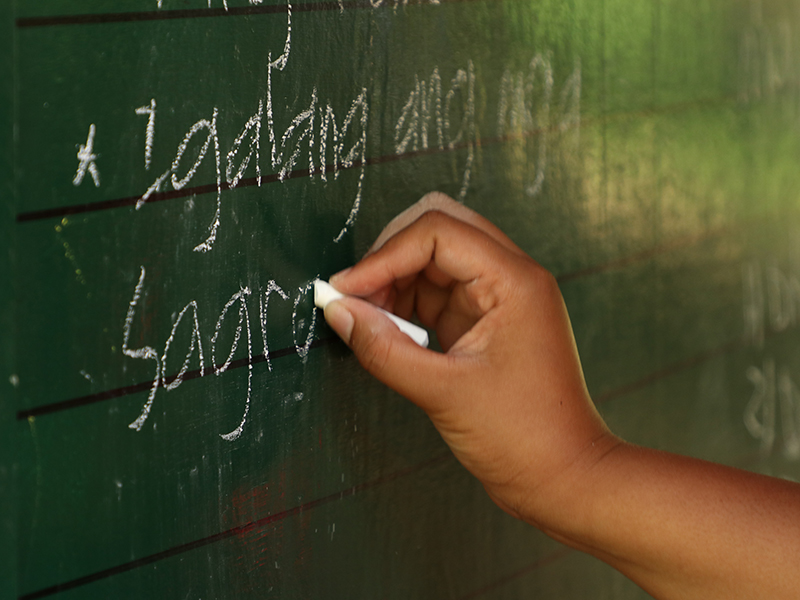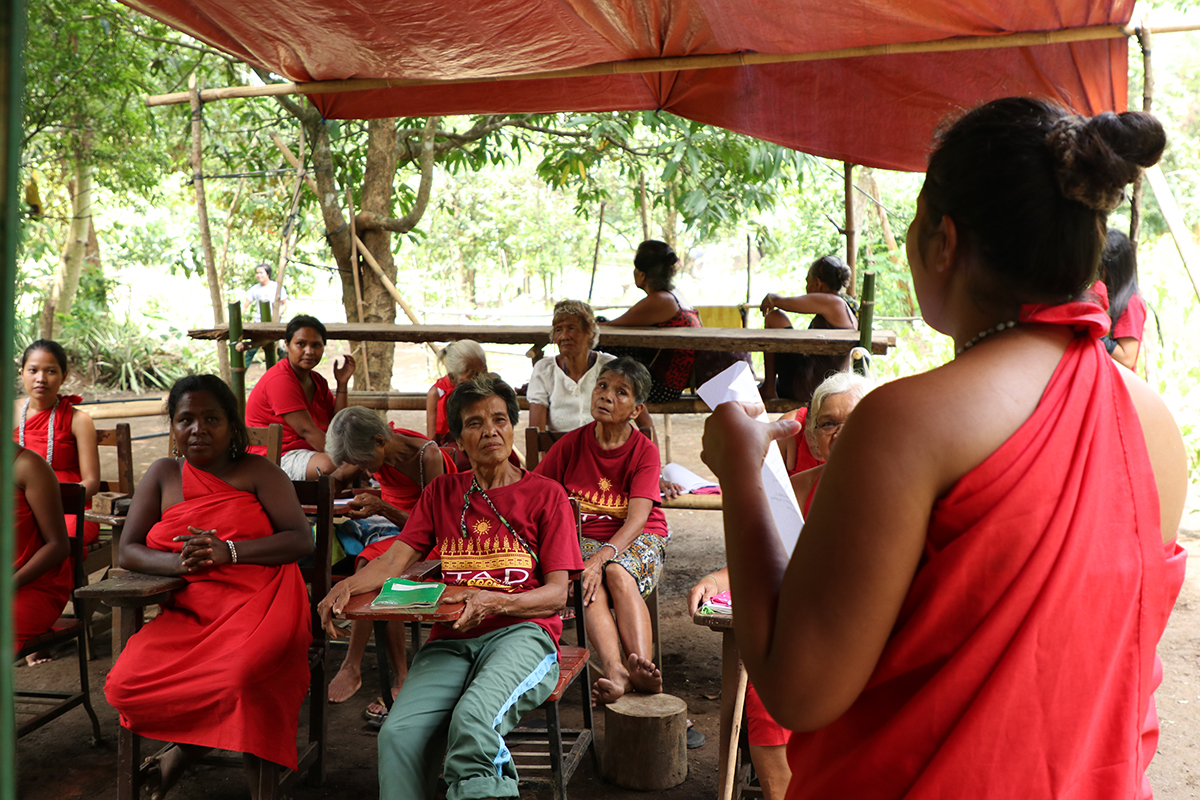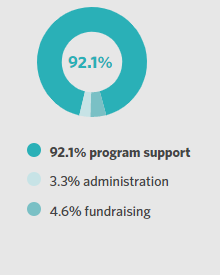Dumagat indigenous community pursues learning
Remegia doesn’t care if people say she’s old, she still wants to learn how to read and write. As a member of the Dumagat indigenous community in the Philippines, education was out of reach for her growing up.
In fact, before Unbound partnered with this indigenous tribe, they didn’t have any formal schooling because of distance, fear and discrimination. Now Remegia and her classmates of all ages are learning how to read and write in an integrated literacy program in their community.
“It feels good that I am now able to write my name. It was like a precious gift for me,” Remegia said. “I keep on persevering to learn these things because I feel like it will make me complete as a human being.”
On Fridays and Saturdays, Dumagat students gather in an outdoor classroom on their ancestral land eager to learn. In addition to reading, writing and counting, Alona Hungco, one of the teachers who is a Dumagat community member herself, focuses on indigenous peoples’ rights and sustainable development — lessons critical to the future of their tribe.
“We observe that visitors come and go from our areas, not knowing that they are already acquiring parts of our ancestral domain by manipulating documents and people around,” said Alona, a former sponsored beneficiary who’s now a staff member of Unbound’s Antipolo program. “If everyone has enough knowledge, we can all prevent that from happening.”
Through the Dumagat school, the tribe is also able to keep their history and native language alive. For these cultural lessons, Alona takes a seat and the teacher becomes a student.
“I don’t speak our own language because of civilization, and we almost had forgotten our culture and our dialect,” Alona said. “But when the [Integrated Literacy Program] came, little by little our children and youth were able to learn and value our own dialect, culture and traditions.”
Left: Remegia, a tribal elder, takes notes during a literacy class. Learning Tagalog, the national Filipino language, is a valuable tool for the Dumagat community to assert their rights and responsibilities in society. Right: Every weekend the Dumagat elders learn essentials of reading and writing.
Honoring contributions of indigenous peoples
Unbound works with indigenous communities around the world, recognizing their considerable contributions like care for the environment and preservation of cultures, while supporting them in their efforts to overcome poverty.
In the pandemic, indigenous peoples have once again shown their capabilities to adapt, the U.N. said on the observance of this year’s International Day of the World’s Indigenous Peoples on Aug. 9. Indigenous communities are using traditional knowledge and practices such as voluntary isolation along with preventative measures to reduce risks, the U.N. said.
When lockdowns in the Philippines impacted the Dumagat community, social worker Lorena Alpay of the Antipolo program opted to stay in a guest room at the Unbound office for an extended period rather than travel back to her family home. She wanted to make sure the Dumagat weren’t cut off from food and essential supplies, since they live in a mountainous area that’s not accessible by vehicle. She also wanted to ensure they had the necessary information to protect their community members from the coronavirus.
The community has been focusing on sustainable farming, exchanging seeds and working to produce more food to guarantee their survival and security in the pandemic and beyond, Lorena said.
“Also, the caring for the Earth more is their worldview that can help address the pandemic crisis,” she said. “The elders of the Dumagat are persevering to campaign to keep their ancestral land for the sake of the younger generation and the generations to come. They really realize that good, healthy food really helps them to become strong, to have their immune system stronger, so that they can fight any kind of virus.”
This article was published in the print version of Living Unbound 2019 and updated in December 2020.
On Fridays and Saturdays, Dumagat students gather in an outdoor classroom on their ancestral land eager to learn.
Did you know?
More than 86% of indigenous peoples globally work in the informal economy, compared to 66% for their non-indigenous counterparts.
Indigenous peoples are nearly three times as likely to be living in extreme poverty compared to their non-indigenous counterparts.
Globally, 47% of all indigenous peoples in employment have no education, compared to 17% of their non-indigenous counterparts. This gap is even wider for women.
Source:
United Nations
















